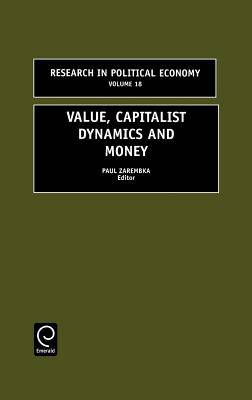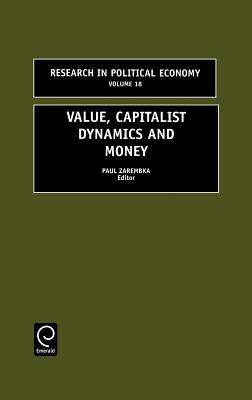
- Afhalen na 1 uur in een winkel met voorraad
- Gratis thuislevering in België vanaf € 30
- Ruim aanbod met 7 miljoen producten
- Afhalen na 1 uur in een winkel met voorraad
- Gratis thuislevering in België vanaf € 30
- Ruim aanbod met 7 miljoen producten
Zoeken
Value, Capitalist Dynamics and Money
€ 289,95
+ 579 punten
Omschrijving
This volume begins with an introduction to Marx's theory of capitalism in his own words, with his examples modernized from use of shillings and pence as subdivisions of the Pound. Well-known 1901 work on the theory of crises in capitalism by Michael Tugan-Baranowsky is translated into English for the first time, with a Preface placing it in context. The political activism and theoretical work of Henryk Grossman through 1926 is summarized in some detail, and a rarely-known brief article of his from 1919 included. Ambiguity in Marx's definition of accumulation of capital and the differing directions Lenin and Luxemburg took with it are next analyzed, with a more precise definition offered. Debate, begun in the last volume, over the valuation of means of production and its effect on the possibility of a falling tendency of the profit rate is taken a step forward as contrasting positions are developed. Finally, credit money as an advanced form of money is analyzed and the post-Keynesian analysis of it, originating from Kaldor, subject to critique. Several theories of inflation theory are reviewed, with focus on the agencies causing inflation. A rediscovery of Marxian inflation theory is proposed.
Specificaties
Betrokkenen
- Uitgeverij:
Inhoud
- Aantal bladzijden:
- 372
- Taal:
- Engels
- Reeks:
- Reeksnummer:
- nr. 18
Eigenschappen
- Productcode (EAN):
- 9780762306961
- Verschijningsdatum:
- 20/12/2000
- Uitvoering:
- Hardcover
- Formaat:
- Genaaid
- Afmetingen:
- 156 mm x 234 mm
- Gewicht:
- 693 g

Alleen bij Standaard Boekhandel
+ 579 punten op je klantenkaart van Standaard Boekhandel
Beoordelingen
We publiceren alleen reviews die voldoen aan de voorwaarden voor reviews. Bekijk onze voorwaarden voor reviews.










